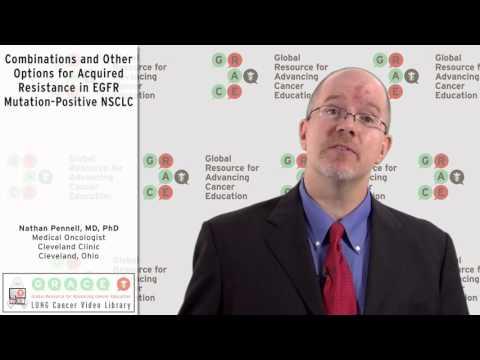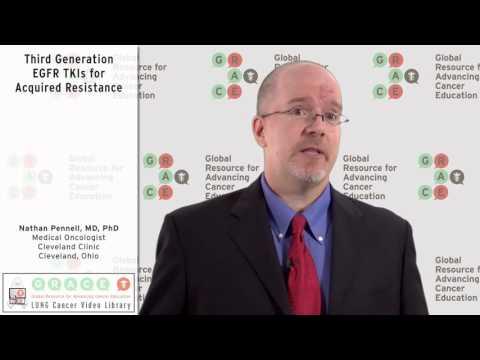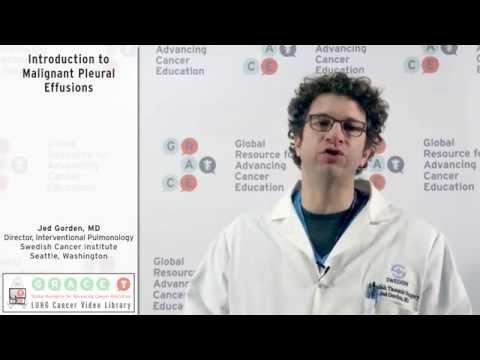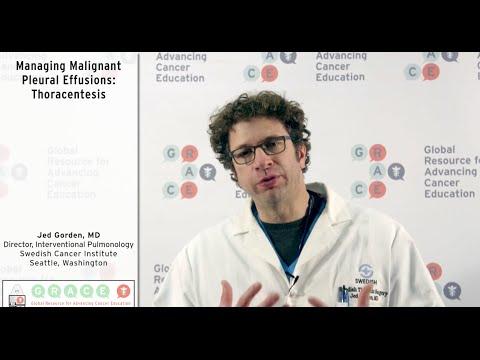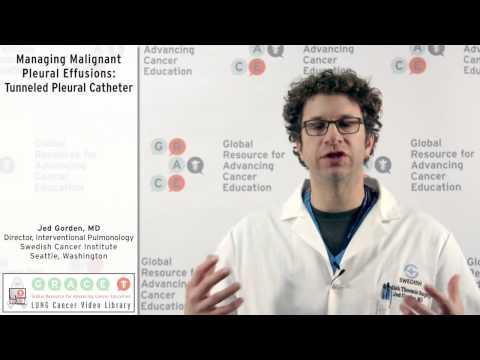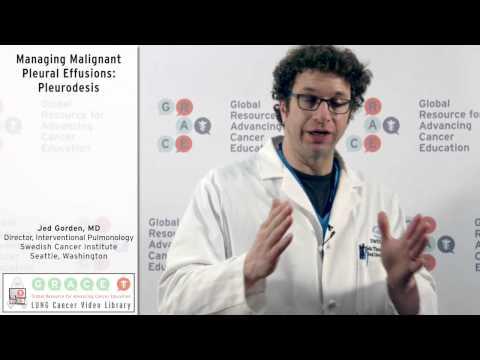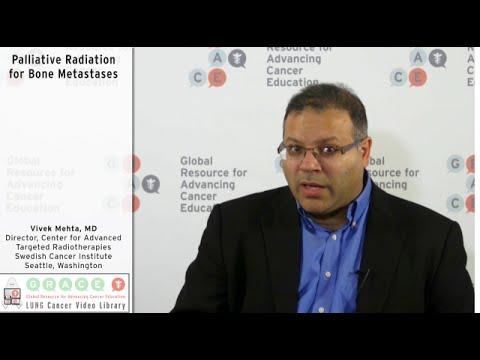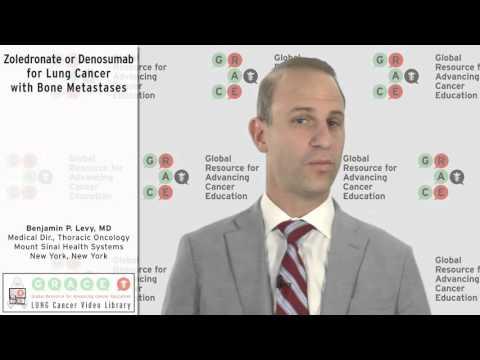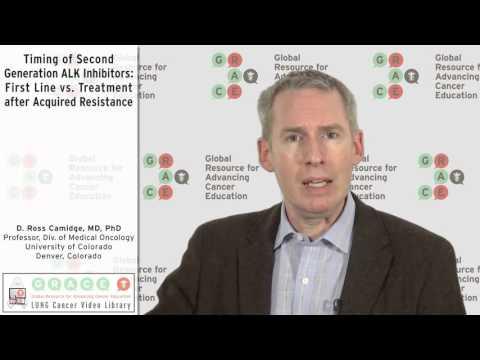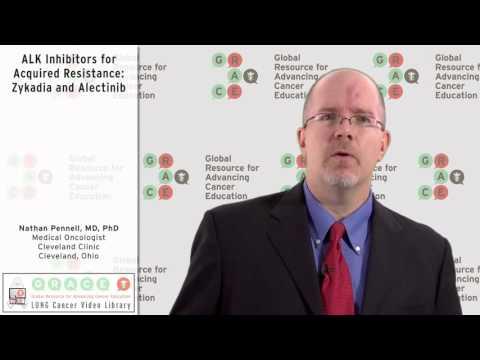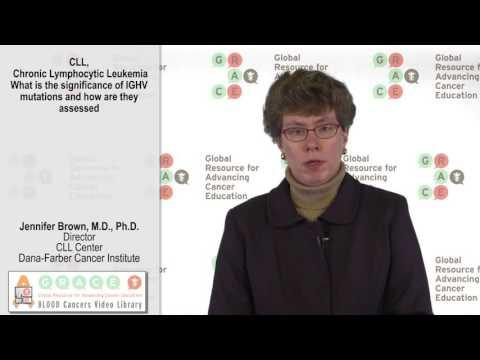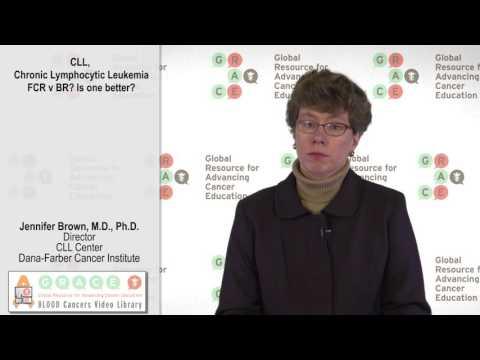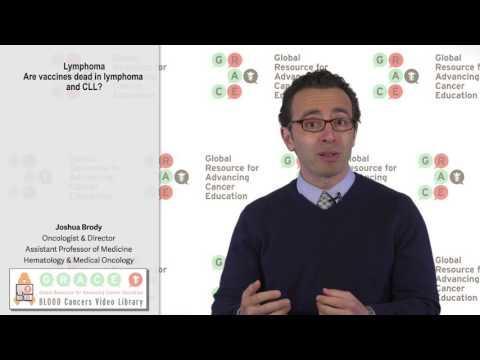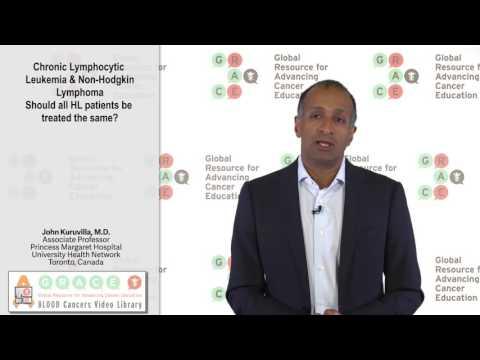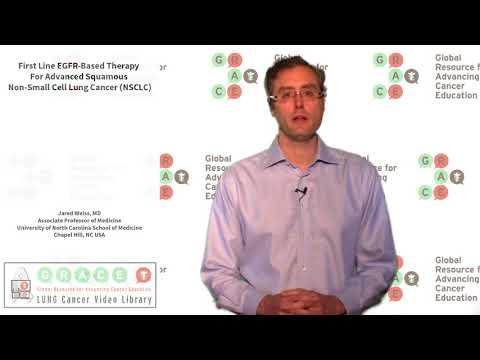Dr. Nathan Pennell, Cleveland Clinic, describes other options for treatment of acquired resistance, including chemotherapy, ablation with SBRT and a combination of Gilotrif and Erbitux.
Video Library
Search the Video Library
Video Language
Filter by Cancer Type:
Displaying Results 1 - 15 of 29
Please Note: New Treatments Have Emerged Since this Original Post
Dr. Nathan Pennell, Cleveland Clinic, discusses the concept of acquired resistance and new agents designed to address it, including Rociletinib and Merelitinib.
Interventional pulmonologist Dr. Jed Gorden reviews malignant pleural effusions (MPEs) are a common complication of lung cancer and some other cancers. Transcript So, I wanted to talk to you today about pleural effusions. Pleural effusions — it’s a complex term, and it’s a very common problem, so
Dr. Jed Gorden describes the details of how a thoracentesis is performed in order to clarify the diagnosis and treat symptoms of a malignant pleural effusion (MPE). Transcript With the pleural fluid that’s built up around the lung — this fluid that exist in between the linings, or as we discussed
A tunneled pleural catheter is an excellent way to manage the symptoms of a recurrent malignant pleural effusion. Dr. Jed Gorden describes how it is placed and how it works. Transcript So we’re talking today about pleural fluid — fluid that resides around the lung, in-between this space that we’re
Dr. Jed Gorden reviews the technique of pleurodesis to manage the complication of recurrent malignant pleural effusion (MPE). Transcript So we’re talking today about pleural fluid, the fluid that builds up around the lung — fluid that causes people be short of breath, often have symptoms like cough
Radiation therapy can be very helpful in treating painful bone metastases or those at risk for causing a fracture due to compromise of bone strength. Dr. Vivek Mehta reviews the basics of this approach. Please feel free to offer comments and raise questions in our Discussion Forums. Transcript
Transcript One of the important points about patients with advanced lung cancer is that 30-40% of patients will develop bone metastases. I think it’s important to recognize this is not bone cancer, this is lung cancer that’s moved to the bone, and in 30-40% of patients at some point who have
Dr. Ross Camidge, University of Colorado, addresses the question of whether to use a second generation ALK inhibitor as first line therapy or only after acquired resistance to crizotinib.
Dr. Nathan Pennell, Cleveland Clinic, discusses acquired resistance to Xalkori in ALK-positive patients, and second generation inhibitors designed to overcome that resistance, such as Zykadia and alectinib.
We recently joined a number of top faculty in the area of hematology in Whistler BC, for the 3rd Annual Summit on Hematologic Malignancies. Jennifer Brown, MD, PhD, Director of the CLL Center at the Dana-Farber Cancer Institute spoke with GRACE and provided provoking and educational discussions on
GRACE joined a number of top faculty in the area of hematology in Whistler BC, for the 3rd Annual Summit on Hematologic Malignancies. Jennifer Brown, MD, PhD, Director of the CLL Center at the Dana-Farber Cancer Institute spoke with GRACE and provided a provoking and educational discussion on FCR vs
GRACE joined a number of top faculty in the area of hematology in Whistler BC, for the 3rd Annual Summit on Hematologic Malignancies. Joshua Brody, MD, Oncologist and Director, Assistant Professor of Medicine, Hematology & Medical Oncology at Mount Sinai Hospital spoke with GRACE about the question
GRACE joined a number of top faculty in the area of hematology in Whistler BC, for the 3rd Annual Summit on Hematologic Malignancies. John Kuruvilla, MD, Associate Professor, Princess Margaret Hospital, University Health Network in Toronto, Canada, spoke with GRACE about Chronic Lymphocytic Leukemia
Dr. Jared Weiss, Vice President of GRACE and Associate Professor at UNC-Chapel Hill in Clinical Research, and the Thoracic Oncology Program at UNC Lineberger, discusses First Line EGFR-Based Therapy For Advanced Squamous Non-Small Cell Lung Cancer (NSCLC).

